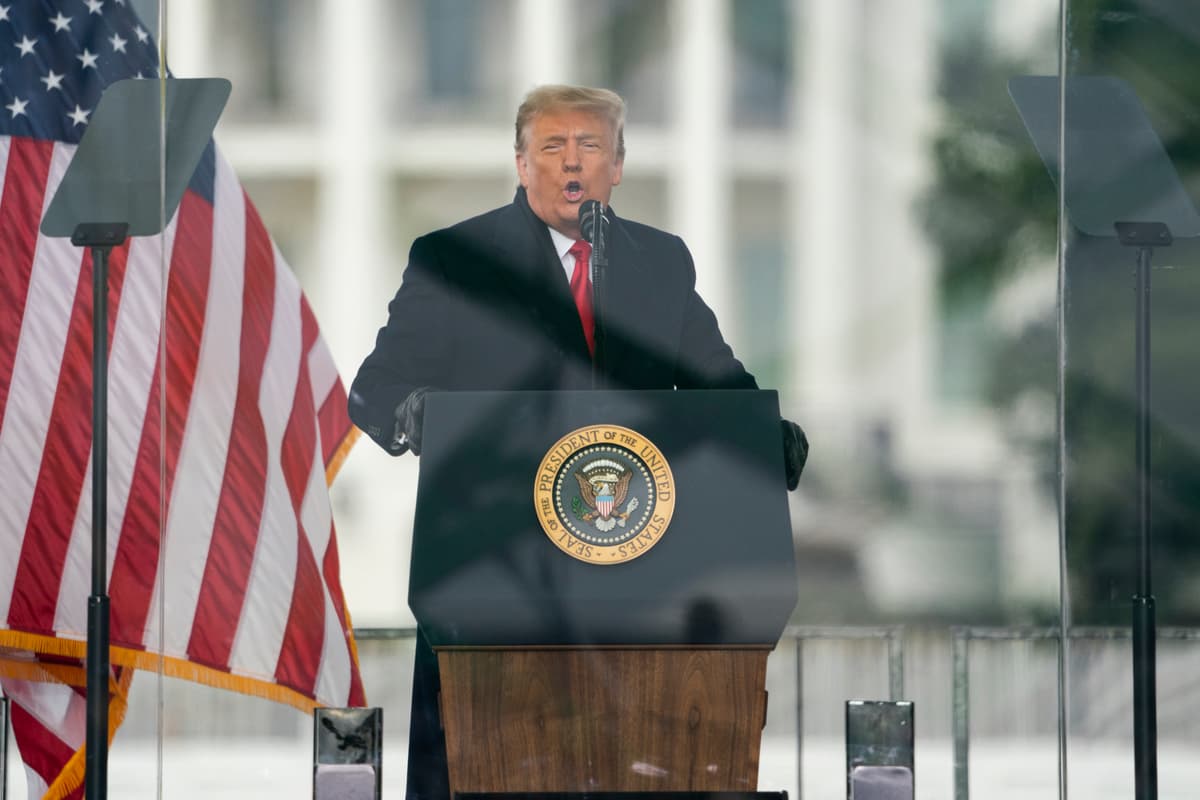Supreme Court To Decide Whether Trump Could Face Double Jeopardy
Jack Smith’s petition for a hearing appears to be the first time the Nine weigh whether an acquittal at impeachment precludes further criminal charges.

Here’s how Special Prosecutor Jack Smith presented the question he has just laid before the Supreme Court. “Whether a former President is absolutely immune from federal prosecution for crimes committed while in office or is constitutionally protected from federal prosecution when he has been impeached but not convicted before the criminal proceedings begin.” The emphasis is ours.
It means that the Special Counsel wants the Nine to decide the meaning of the Constitution’s Impeachment Judgment Clause. It ordains that “judgment in Cases of Impeachment shall not extend further than to removal from Office and disqualification to hold and enjoy any Office of honor, Trust or Profit under the United States.” But, it adds, the “Party convicted shall nevertheless be liable and subject to Indictment, Trial, Judgment and Punishment, according to Law.”
Mr. Trump, of course, was not convicted. On the contrary, the Senate discovered him to be “not guilty.” What is so all-fired complicated about that clause? It says that a person can still be tried in a criminal court if he was convicted in the Senate. It doesn’t say that a person who was acquitted can be tried a second time. The prohibition of double-jeopardy bars successive and repetitive prosecutions. Prosecutors have but one chance.
This was marked in a memorable dissent in Gamble v. United States when Justice Neil Gorsuch — the Coloradan was joined by the Brooklyn-bred Justice Ruth Bader Ginsberg — explained that a “free society does not allow its government to try the same individual for the same crime until it’s happy with the result.” He called this an “ancient rule.” He didn’t win, but there are those of us who believe he was right. Now, Mr. Trump claims it for his own.
In the latest case, Mr. Smith won this point at a lower court. He insists that an acquittal of a crime on impeachment does not bar subsequent trial in a criminal court. He underlines the Constitution’s inclusion of “nevertheless,” which he maintains cleaves the clause in two, splitting the political penalties of impeachment from the punishments that could be imposed by the courts. But another trial after acquittal in the Senate?
To prohibit that, Mr. Smith argues, would allow former presidents to evade prosecution when a conviction cannot be secured in the Senate. He seems to think future presidents might impeach themselves hoping to get acquitted in the Senate. He could have cited Robert Bork, who warned that barring double jeopardy after a trial in the Senate would offer a president “permanent immunity from criminal prosecution however plain his guilt.”
This court, its rightward tilt notwithstanding, has not proved to be hospitable to Mr. Trump. On this head, though, it appears to our editorial eyes that the 45th president has the more straightforward case. He asks the justices to read the words of the Constitution as they are written. What a lesson it would be in American law if the rush in 2021 to put Mr. Trump on trial in the Senate turns out to bar his foes from trying him a second time today.

